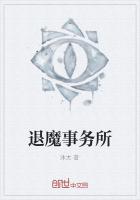The exclamation, formerly quoted, of the countess, "Piccina!" when she first saw Genevieve by the roadside, open-mouthed at sight of the carriage and the elegantly dressed woman within it, will be understood.This girl, almost a dwarf, of Montenegrin vigor, loved the handsome, noble bailiff, as children of her age love, when they do love, that is to say, with childlike passion, with the strength of youth, with the devotion which in truly virgin souls gives birth to divinest poesy.Catherine had just swept her coarse hands across the sensitive strings of that choice harp, strung to the breaking-point.
To dance before Michaud, to shine at the Soulanges ball and inscribe herself on the memory of that adored master! What glorious thoughts!
To fling them into that volcanic head was like casting live coals upon straw dried in the August sun.
"No, Catherine," replied La Pechina, "I am ugly and puny; my lot is to sit in a corner and never to be married, but live alone in the world."
"Men like weaklings," said Catherine."You see me, don't you?" she added, showing her handsome, strong arms."I please Godain, who is a poor stick; I please that little Charles, the count's groom; but Lupin's son is afraid of me.I tell you it is the small kind of men who love me, and who say when they see me go by at Ville-aux-Fayes and at Soulanges, 'Ha! what a fine girl!' Now YOU, that's another thing;
you'll please the fine men."
"Ah! Catherine, if it were true--that!" cried the bewitched child.
"It is true, it is so true that Nicolas, the handsomest man in the canton, is mad about you; he dreams of you, he is losing his mind; and yet all the other girls are in love with him.He is a fine lad! If you'll put on a white dress and yellow ribbons, and come to Socquard's for the midsummer ball, you'll be the handsomest girl there, and all the fine people from Ville-aux-Fayes will see you.Come, won't you?--
See here, I've been cutting grass for the cows, and I brought some boiled wine in my gourd; Socquard gave it me this morning," she added quickly, seeing the half-delirious expression in La Pechina's eyes which women understand so well."We'll share it together, and you'll fancy the men are in love with you."
During this conversation Nicolas, choosing the grassy spots to step on, had noiselessly slipped behind the trunk of an old oak near which his sister had seated La Pechina.Catherine, who had now and then cast her eyes behind her, saw her brother as she turned to get the boiled wine.
"Here, take some," she said, offering it.
"It burns me!" cried Genevieve, giving back the gourd, after taking two or three swallows from it.
"Silly child!" replied Catherine; "see here!" and she emptied the rustic bottle without taking breath."See how it slips down; it goes like a sunbeam into the stomach."
"But I ought to be carrying the milk to Mademoiselle Gaillard," cried Genevieve; "and it is all spilt! Nicolas frightened me so!"
"Don't you like Nicolas?"
"No," answered Genevieve."Why does he persecute me? He can get plenty other girls, who are willing."
"But if he likes you better than all the other girls in the valley--"
"So much the worse for him."
"I see you don't know him," answered Catherine, as she seized the girl rapidly by the waist and flung her on the grass, holding her down in that position with her strong arms.At this moment Nicolas appeared.
Seeing her odious persecutor, the child screamed with all her might, and drove him five feet away with a violent kick in the stomach; then she twisted herself like an acrobat, with a dexterity for which Catherine was not prepared, and rose to run away.Catherine, still on the ground, caught her by one foot and threw her headlong on her face.
This frightful fall stopped the brave child's cries for a moment.
Nicolas attempted, furiously, to seize his victim, but she, though giddy from the wine and the fall, caught him by the throat in a grip of iron.
"Help! she's strangling me, Catherine," cried Nicolas, in a stifled voice.
La Pechina uttered piercing screams, which Catherine tried to choke by putting her hands over the girl's mouth, but she bit them and drew blood.It was at this moment that Blondet, the countess, and the abbe appeared at the edge of the wood.
"Here are those Aigues people!" exclaimed Catherine, helping Genevieve to rise.
"Do you want to live?" hissed Nicolas in the child's ear.
"What then?" she asked.
"Tell them we were all playing, and I'll forgive you," said Nicolas, in a threatening voice.
"Little wretch, mind you say it!" repeated Catherine, whose glance was more terrifying than her brother's murderous threat.
"Yes, I will, if you let me alone," replied the child."But anyhow I will never go out again without my scissors."
"You are to hold your tongue, or I'll drown you in the Avonne," said Catherine, ferociously.
"You are monsters," cried the abbe, coming up; "you ought to be arrested and taken to the assizes."
"Ha! and pray what do you do in your drawing-rooms?" said Nicolas, looking full at the countess and Blondet."You play and amuse yourselves, don't you? Well, so do we, in the fields which are ours.
We can't always work; we must play sometimes,--ask my sister and La Pechina."
"How do you fight if you call that playing?" cried Blondet.
Nicolas gave him a murderous look.
"Speak!" said Catherine, gripping La Pechina by the forearm and leaving a blue bracelet on the flesh."Were not we amusing ourselves?"
"Yes, madame, we were amusing ourselves," said the child, exhausted by her display of strength, and now breaking down as though she were about to faint.
"You hear what she says, madame," said Catherine, boldly, giving the countess one of those looks which women give each other like dagger thrusts.















